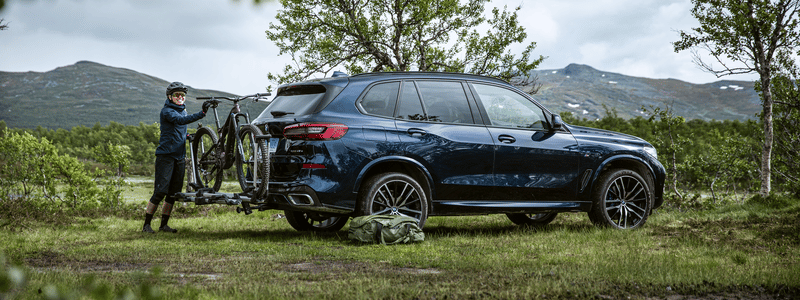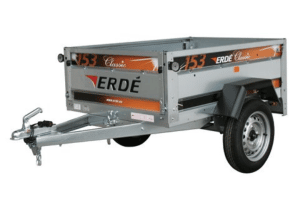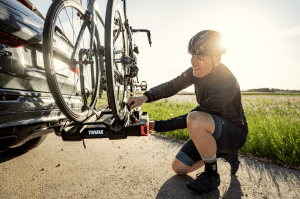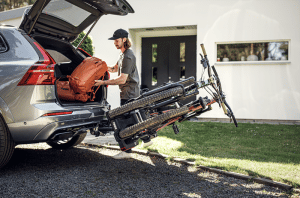Best Practices and Common Mistakes To Avoid
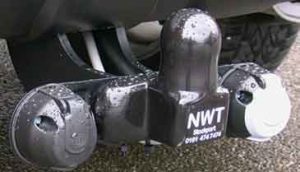 Once you have a towbar fitted, it is tempting to get straight to work and start completing all of those chores or fun activities that caused you to invest in a towbar in the first instance.
Once you have a towbar fitted, it is tempting to get straight to work and start completing all of those chores or fun activities that caused you to invest in a towbar in the first instance.
However, although the team at NorthWest Towbars will ensure that your towbar is fitted professionally and to the highest of standards, there are still some things you as a driver that you need to take into consideration to ensure that every towing job is safe and that the trailer is secure before, during and after every trip.
Trailer Swaying
Trailer swaying is a common phenomenon that everyone towing a trailer needs to take into consideration. A range of reasons could cause your trailer to sway, such as driving too fast, carrying an unbalanced load, a sudden and unexpected strong gust of wind, or making a sharp turn.
In the worst-case scenario where the trailer is unstable, a swaying trailer can cause the driver to lose control. This, unfortunately, can then lead to a serious accident, causing the trailer and the towing vehicle to roll over. Once the swaying motion starts, it can be nigh on impossible to regain control of the trailer.
Unfortunately, in most cases, any effort on the driver's part to rectify the problem often exacerbates it. As with most things in life, prevention is better than cure, so the best option is to prevent the trailer from swaying in the first instance. Always tow a balanced load, drive at a cautious speed, and focus on your trailer's behaviour as you drive. If, by slowing down further, you are able to retain control of the trailer, then our advice would be to pull over and check the contents of the trailer. This is because they may have moved, which is what might have caused the swaying to begin in the first place.
Tyre Pressures
Before setting off on any trip that involves towing a trailer, it is essential that you check the tyre pressures of both the towing vehicle and the trailer itself. The heavier the load you are carrying in the trailer, the greater the corresponding pressure on your tyres, which is why it makes sense to ensure that they are properly inflated before you set off. Underinflated tyres can be hazardous, so by checking tyre pressures before you leave, you are taking preventative measures that should result in a safer journey.
Check Your Brakes
It is important to remember that the combined weight of your car, the trailer and its contents are going to be significantly higher than what you are used to when just driving your vehicle on its own. This can also mean that your car has more inertia and momentum, meaning that your brakes will need to work that much harder to deliver the desired effect. To counteract this, UK trailers over 750kg have their own braking system installed, this can be difficult to check thoroughly but if you apply the handbrake you should find the trailer should not move and also importantly when you release the handbrake the trailer should free up.
The added benefit of a trailer with a built-in braking system is that it reduces the wear and tear on your vehicle's brakes. When braking, always remember that your stopping distance could be much larger than without a trailer, so ensure that you give yourself additional braking distance.
When braking, it is important to apply the brake gently to prevent any chance of jackknifing or skidding. During the trip, it is also important to regularly check your brakes when going down a hill, for instance, and where possible, if you have a manual gearbox, choose a lower gear to help you control your speed.
Turning: If this is your first time towing a trailer, check that your trailer does not have a wider wheelbase than your vehicle's. If that is, in fact, the case, then it is essential to factor that in when going around corners. Due to the broader wheelbase, you can easily hit kerbs or road signs if you fail to factor the extra width into your driving. This could also damage the trailer's axles, tyres or even the trailer itself.
Speed
Another issue that can catch anyone towing a trailer for the first time is your acceleration or lack of acceleration. When towing a heavy trailer, your vehicle will not be able to accelerate as rapidly as it might normally. This is usually fine on a quiet country road, but when it can be challenging when joining a motorway and trying to pull out into fast-moving traffic.
While that gap might be easy to accelerate into when driving your car, the added weight of the trailer can make such a manoeuvre much more challenging. Always give yourself added time when executing this type of procedure.
Reduced Visibility
Towing a trailer dramatically increases the length and width and, in many cases, reduces visibility for you as a driver. This can significantly impact everyday driving procedures such as reversing, parking, changing lanes or making turns.
We advise investing in some towing mirrors, which are relatively inexpensive pieces of equipment that can help you stay safe and prevent any unnecessary and expensive accidents.
With all that being said, provided you take your time and gain experience while towing a trailer, it is a relatively easy and beneficial skill to learn.
For all of your trailer and towbar needs, contact North West Towbars on 0161 474 7474
